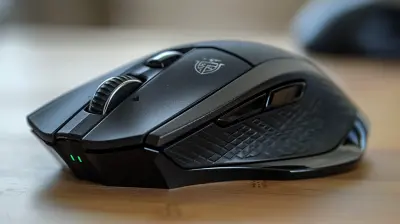Mechanical vs. Membrane Keyboards: Which Should You Choose for Gaming?
8 June 2025
When it comes to gaming, choosing the right keyboard can feel like standing at a crossroads. On one side, there’s the mechanical keyboard — the flashy, often loud option praised by gaming enthusiasts everywhere. On the other, the membrane keyboard — the quieter and more budget-friendly sibling. If you’ve ever found yourself staring at rows of keyboards, wondering which one will help you dominate your next match, you’re not alone. It’s not just about typing; it’s about the right feel, the speed, and whether or not it clicks (both literally and figuratively).
But how do you decide? Let’s dive deep into the mechanical vs. membrane debate, break down their pros and cons, and figure out which one deserves a spot on your gaming desk.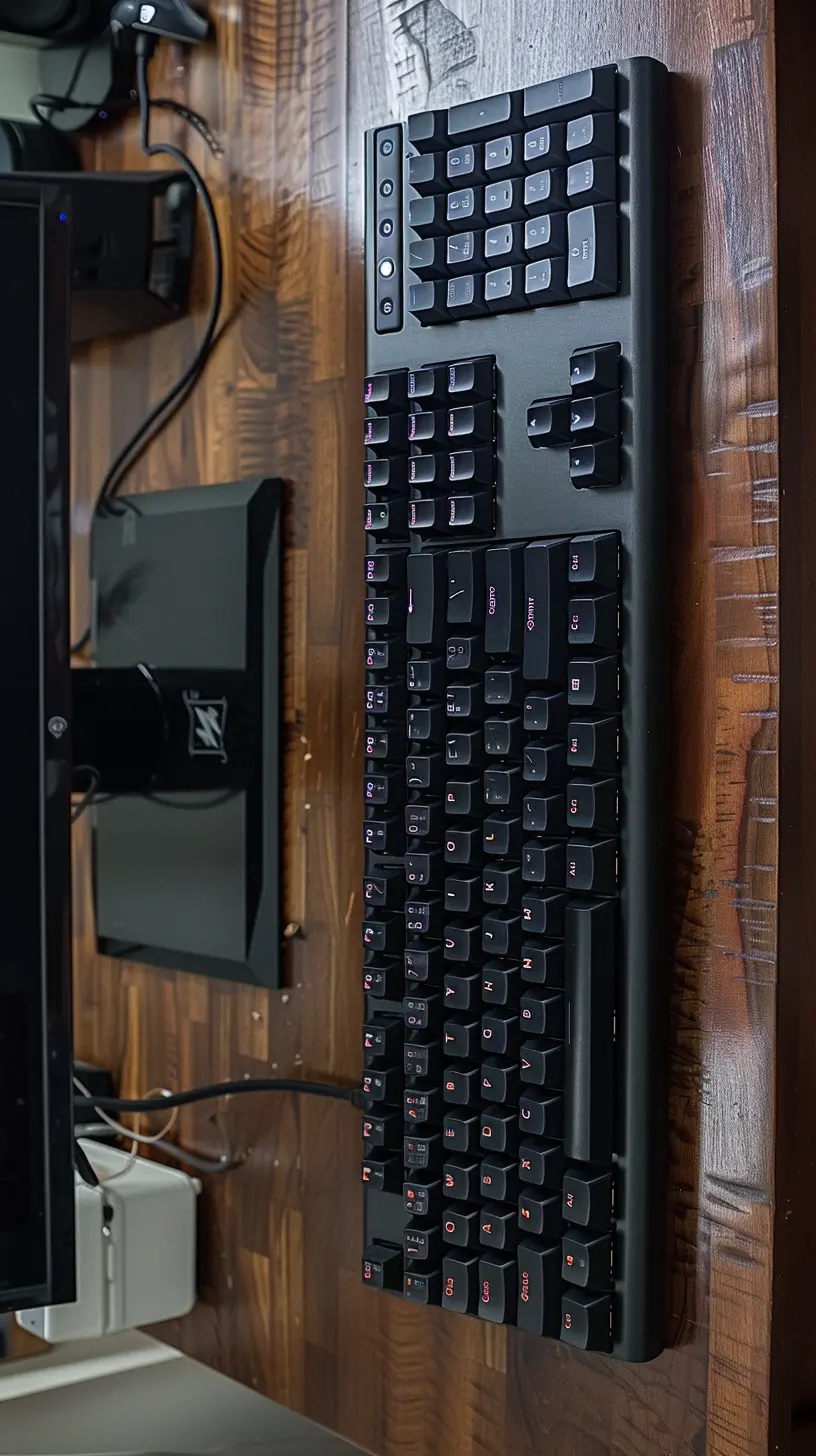
What Is a Mechanical Keyboard, Anyway?
Mechanical keyboards are the fancy sports cars of the keyboard world. They’re equipped with individual mechanical switches under each key, which results in a tactile and often audible “click.” That satisfying sound you hear when someone types on a mechanical keyboard? Yeah, that’s what we’re talking about.The Anatomy of a Mechanical Keyboard
At its core, a mechanical keyboard has:- Individual Key Switches: Each key has its own spring-loaded switch, meaning every press is independent.
- Customizability: From RGB lighting to keycap designs, mechanical keyboards are like a blank canvas for gamers.
- Durability: These bad boys are built to last. Most mechanical keys are rated for 50 million keystrokes or more.
Why Gamers Love Mechanical Keyboards
There’s a reason mechanical keyboards are on so many wishlists. Gamers love them for:- Precision: Want to land a perfect headshot in an FPS? Mechanical switches are super responsive.
- Feedback: Whether it’s the tactile bump or the audible click, you’ll know exactly when a key is pressed.
- Switch Variety: You can choose from different types of switches like Cherry MX Blues (clicky) or Reds (linear and smooth) to match your playstyle.
That said, mechanical keyboards aren’t perfect. We’ll get to the downside in a minute, but let’s first give membrane keyboards their due spotlight.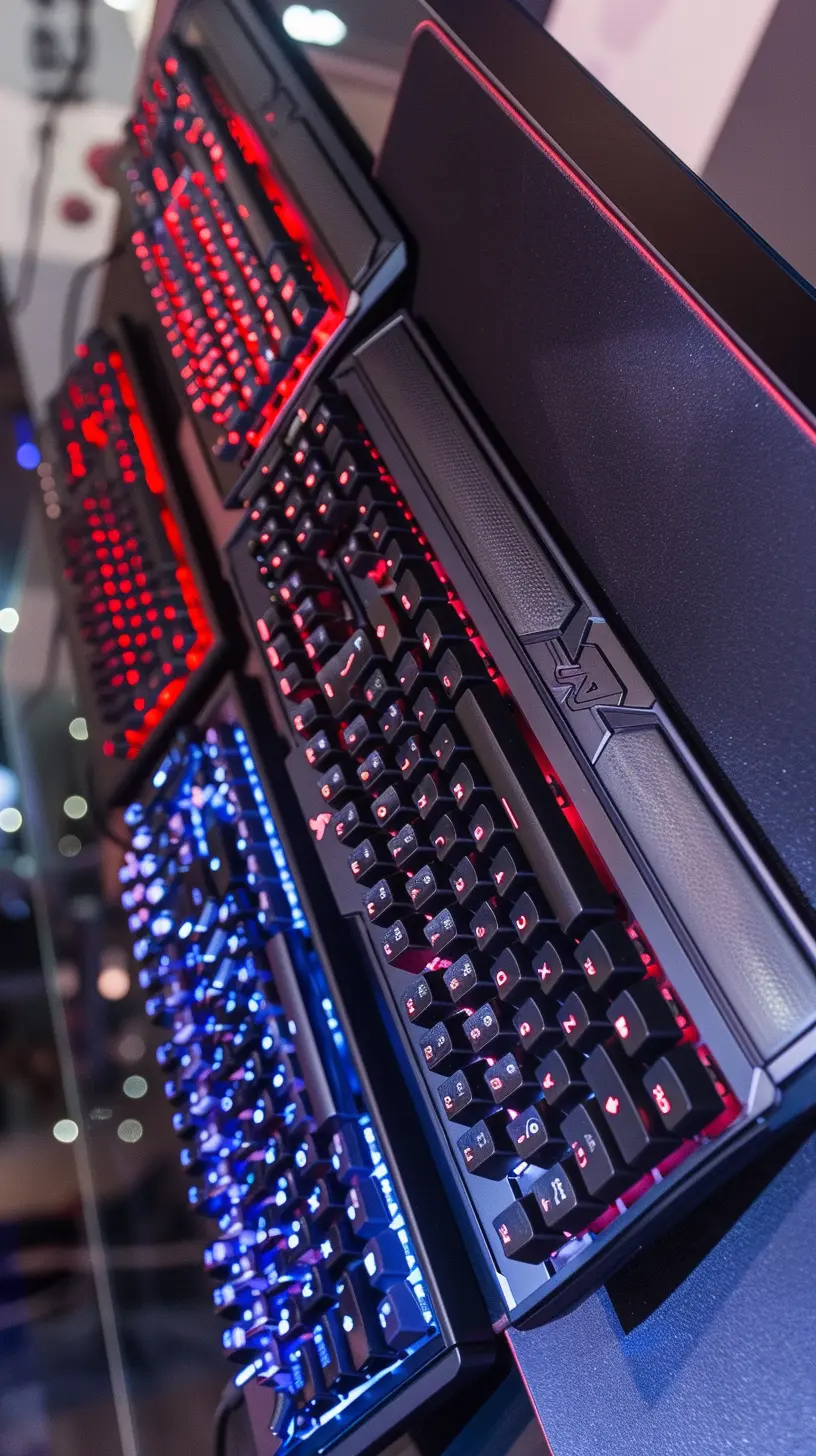
What Is a Membrane Keyboard?
If mechanical keyboards are sports cars, membrane keyboards are your reliable family sedans. They’re the type of keyboards most people encounter — quiet, lightweight, and straightforward. Instead of individual switches, membrane keyboards use pressure pads with electrical contacts beneath them.How Membrane Keyboards Work
Membrane keyboards have:- A Thin Layered Design: Keys press down on a flat, flexible membrane sheet, which then registers the input.
- Soft Keypresses: Because of their construction, membrane keyboards are quieter and don’t offer tactile feedback like mechanical keyboards do.
Why Gamers Still Use Membrane Keyboards
Sure, they’re not as flashy, but that doesn’t mean membrane keyboards don’t have their merits:- Affordability: On a tight budget? Membrane keyboards are significantly cheaper than their mechanical counterparts.
- Quieter Operation: Perfect for late-night gaming sessions where you don’t want to wake up the entire household.
- Lightweight Design: Easy to move around and often more compact.
But, of course, membrane keyboards don’t offer the same level of performance as mechanical ones. And for gamers, that might be a dealbreaker.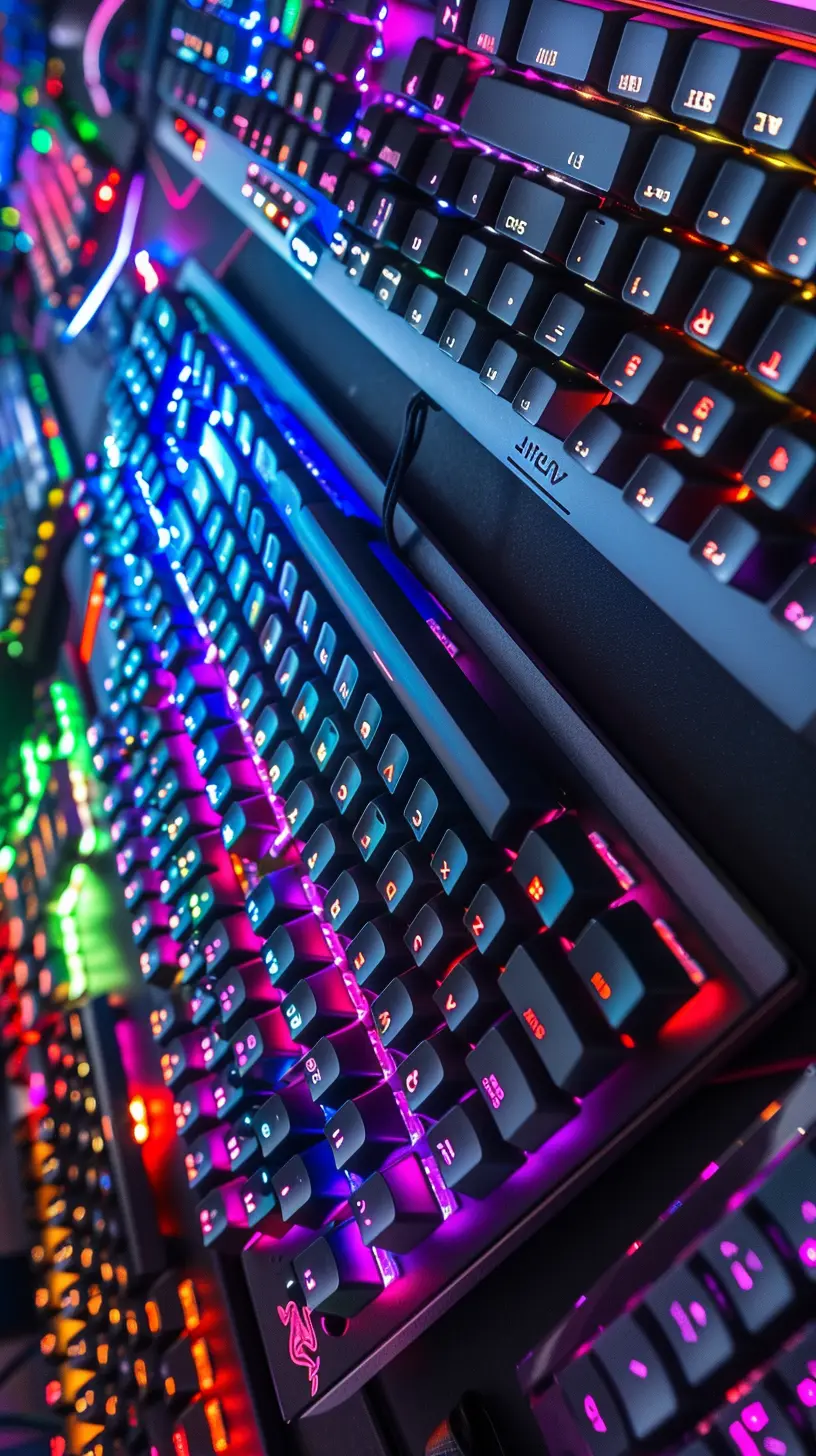
Mechanical vs. Membrane Keyboards: The Pros and Cons
Let’s stack them up side by side and see how they perform in categories that matter to gamers.1. Durability
- Mechanical: Built like tanks. Most models can handle years of abuse, whether it’s intense gaming marathons or furious typing sessions.- Membrane: Not so much. These keyboards tend to wear out faster as the membrane deteriorates over time.
Verdict: Mechanical keyboards win this round hands down.
2. Performance and Responsiveness
- Mechanical: The individual switches ensure a faster response time. Plus, the tactile feedback means you’ll feel every input.- Membrane: Input can sometimes feel mushy, and there’s no tactile bump to confirm a press.
Verdict: If performance is key (pun intended), go mechanical.
3. Typing and Noise
- Mechanical: Some switches, like Cherry MX Blues, are LOUD. They’re great if you want to annoy your roommates, but not ideal for quiet environments.- Membrane: Blessedly silent. If you game in shared spaces, this might be the better option.
Verdict: Membrane keyboards win for silence; mechanical wins for typing satisfaction.
4. Price
- Mechanical: Expensive. A good mechanical keyboard can cost anywhere from $70 to $300, depending on features.- Membrane: Wallet-friendly. You can find decent membrane keyboards for as little as $20.
Verdict: Membrane keyboards are the clear choice if you’re on a budget.
5. Customizability
- Mechanical: The sky’s the limit. Swap out keycaps, program macros, or sync RGB lighting with your other gear.- Membrane: Limited options. What you see is (mostly) what you get.
Verdict: Mechanical keyboards take the crown here.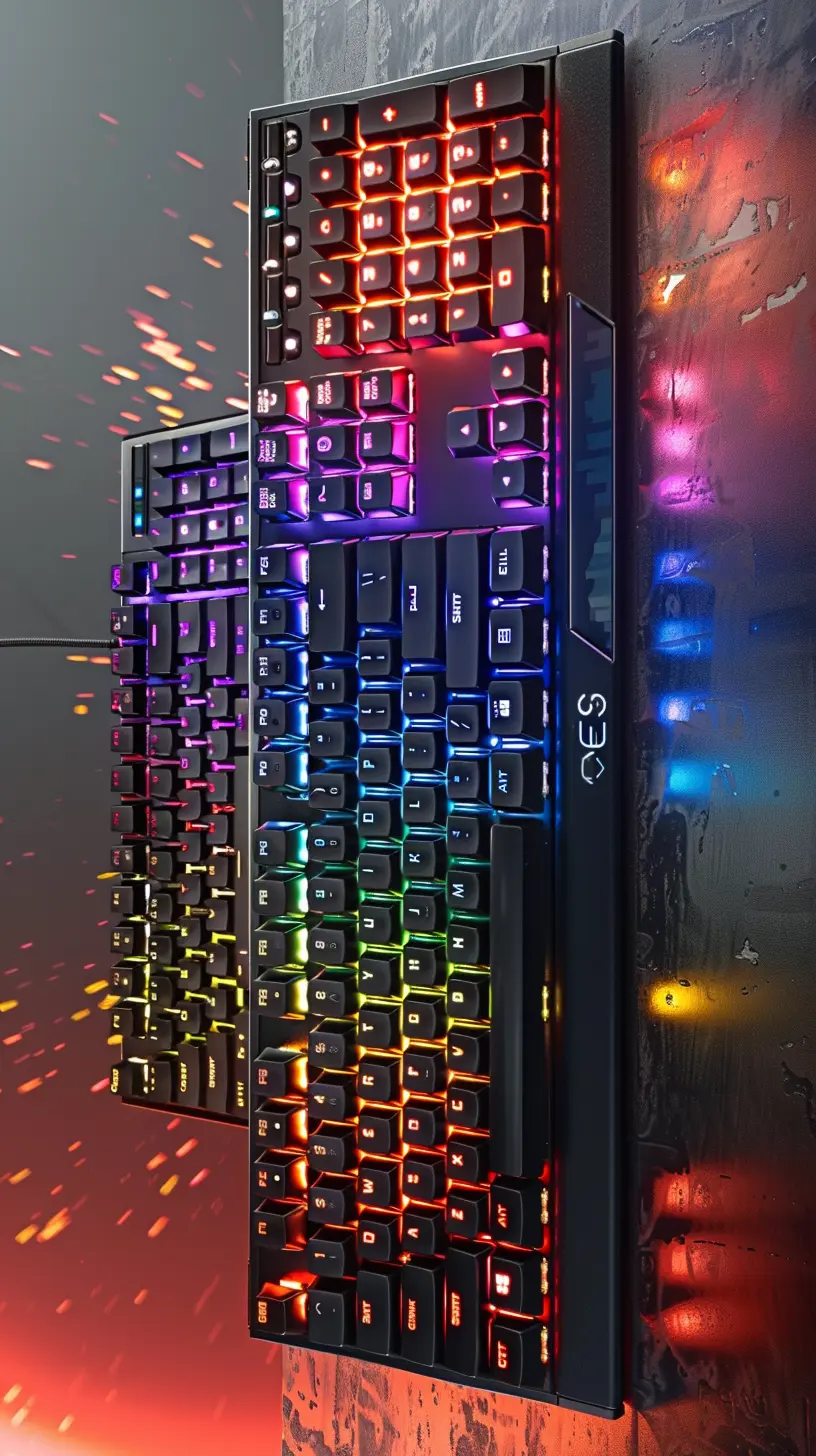
Gaming Scenarios: Which Keyboard Fits Your Playstyle?
Still on the fence? Let’s break it down by gaming scenarios — because your choice might depend on the kind of games you play.For Competitive Gaming
Are you all about reaction speed and precision? If you’re into FPS, MOBA, or RTS games, you’ll appreciate what mechanical keyboards bring to the table. The responsiveness and tactile feedback can give you an edge over your opponents.Winner: Mechanical Keyboard
For Casual Gaming
If you’re more into laid-back sessions or single-player games, a membrane keyboard will do just fine. After all, you don’t need split-second precision to enjoy open-world adventures.Winner: Membrane Keyboard
For Streamers
Want your gear to double as a statement piece? Mechanical keyboards often feature eye-catching designs and RGB lighting that look fantastic on stream. Just make sure to choose a quieter switch if you don’t want your audience bombarded with click-clack sounds.Winner: Mechanical Keyboard (with quieter switches)
So, Which One Should You Choose?
At the end of the day, the choice between mechanical and membrane keyboards boils down to personal preference and how you plan to use it. Here’s a quick recap:- Go for a mechanical keyboard if you want top-notch performance, durability, and customizability. It’s an investment, but for serious gamers, it’s worth every penny.
- Opt for a membrane keyboard if you’re on a budget, need a quieter option, or don’t see yourself gaming competitively anytime soon.
Think of it this way: a mechanical keyboard is like upgrading to a state-of-the-art gaming rig, while a membrane keyboard is the trusty console you’ve always loved. Both have their place in the gaming world — it’s all about finding the one that feels right for you.
Final Thoughts
Choosing the right keyboard might not seem like a game-changing decision (pun intended), but it’s one of those things that can profoundly impact your gaming experience. Whether you go mechanical or membrane, the most important thing is that it fits your playstyle, budget, and personal preference. After all, you’re the one who will be using it day in and day out. So, take your time, test both types if you can, and pick the one that feels like an extension of your hands.And remember: It’s not just about the keyboard; it’s about how you use it. So make your choice, gear up, and happy gaming!
all images in this post were generated using AI tools
Category:
Hardware ReviewsAuthor:

Leif Coleman
Discussion
rate this article
2 comments
Mallory Mason
“Choose what feels right!”
June 12, 2025 at 3:43 PM

Leif Coleman
Absolutely! Ultimately, it comes down to personal preference. Test both types to see what suits your gaming style best!
Oliver Lawrence
While mechanical keyboards offer superior tactile feedback and durability, membrane keyboards provide quieter operation and affordability. Gamers should consider their preferences for responsiveness versus comfort, as each type serves different gaming styles effectively.
June 8, 2025 at 3:55 AM

Leif Coleman
That's a great summary! Choosing between mechanical and membrane keyboards really comes down to individual preferences in tactile feedback, noise level, and budget. Each type has distinct advantages that cater to different gaming styles.
